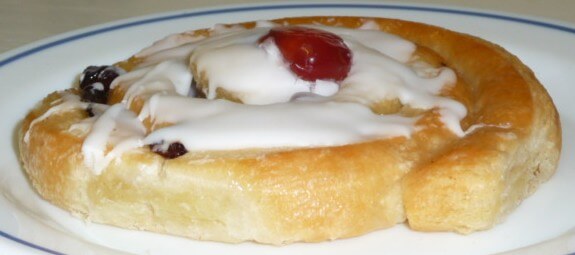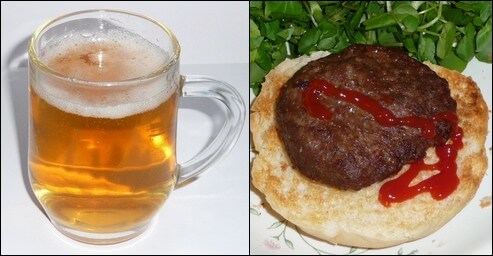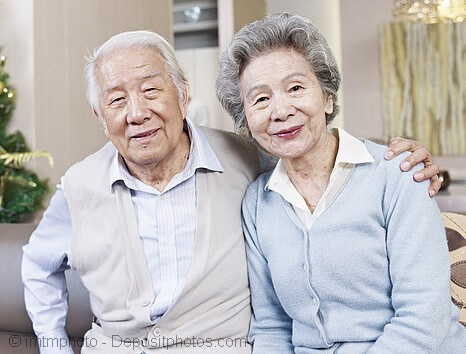- Home
- Causes of Hair Loss
- Diet
Hair Loss and Diet: How fast food Makes it Worse
By Paul Taylor

Hair loss and diet can sometimes be connected. In both men and women, hair loss numbers are getting worse. And the foods we eat are largely to blame.
This article explains why.
Types of Hair Loss Affected by Poor Diet
There are various types of hair loss (totally different from each other) which can be influenced by the foods you eat.
For example, a nutritional deficiency and hair loss can develop together if one or more vital minerals are absent from your diet. This can happen very slowly over a long period of time (perhaps years), as your body becomes more and more depleted.
Examples include chronic telogen effluvium, which can involve a long-term iron deficiency, and thyroid-related hair loss, which can sometimes be connected to a diet that lacks iodine.
However, this article focuses on androgenetic alopecia (male and female pattern hair loss).
That's because this is the type of hair loss which mostly explains why hair loss numbers are on the rise.
Androgenetic alopecia is already largely to blame for the significant hair loss that 50% of all women experience (1).
And, of course, it's by far the most common type of hair loss in men:
80% of Caucasian men are affected by this type of hair loss by the age of 80 (1).
20% of men are likely to start losing their hair as early as puberty, and could experience complete male pattern baldness by the age of 30.
A further 60% will lose their hair gradually, whereby widespread baldness may or may not develop, but smaller bald areas like receding temples or a bald patch at the back, certainly can.
And just 20% of men do not lose a significant amount of hair.
But, even those men and women without hair loss, a future full of hair is now far from certain. As you'll see below, this type of hair loss and diet can be connected.
Baldness, Beer and Burgers!
Everyone loves junk food. It tastes great doesn't it? But would it taste as great if you knew that it could be making your hair loss worse?
Most people already know that the typical junk food diet enjoyed in the West is causing a serious obesity problem. And with it, serious health problems too – diabetes, heart disease, hypertension to name but a few related diseases.
But what you might not know is that excessive consumption of beer, burgers, sugary snacks and drinks, etc. can all contribute to baldness, hair loss and hair thinning.

So, can junk like beer and burgers actually cause hair loss?
No.
Drinking too much alcohol or eating too much junk food on a regular basis can never start the hair loss process.
Just take a look at all the seriously obese people out there who consume vast quantities of this rubbish. Many of them still have all their hair.
And that's mostly down to their genes, of course. Some people simply don't have the genetic skull shape characteristics for hair loss to develop.
So, whilst fast food, junk food, etc. could eventually induce a heart attack and kill these people, they should at least die keeping their hair on!
More calories, more hair loss
However, if hair loss does run in your family, and your normal
daily diet contains far too many calories*, you might just find yourself
suffering hair loss sooner, and to a greater extent, than you otherwise
would.
* To maintain weight, men are generally recommended to consume about 2500 calories per day (2).
That’s not a lot! You only have to have a couple of alcoholic drinks or sugar fixes per day on top of a regular diet and you’ll easily exceed that.
And for women, it’s just 2000 calories per day to maintain weight (2). So you can see how it’s even easier for women than it is for men to exceed their recommended daily intake.
The reason why a long-term poor diet might cause hair loss sooner than it should is because hormone production and balance are influenced by the foods you eat.
And that especially applies to saturated fats.
Saturated fats - Bad news for your hair
Too much saturated fat in your diet is especially bad for both your health and your hair.
Most saturated fats we eat come from red meat, milk, cheese, processed foods, etc.
These all tend to increase your LDL (bad) cholesterol levels, whereas HDL (good) cholesterol generally comes from unsaturated fats.
The reason why saturated fats are so bad for your hair is because they can get converted into two things connected with the hair loss process.
- Androgens - Hormones such as testosterone and dihydrotestosterone (DHT).
- Sebum.
Here’s a very basic pathway showing how your body can produce androgens and sebum from fat:
Fat => Cholesterol => Testosterone => DHT => Sebum
The androgen DHT is already well known for its association with this type of hair loss.
As for sebum, its production is directly influenced by these androgens (i.e., more sebum is produced as androgen levels rise) (3)(4).
And, in excess, this oily substance might also contribute slightly to the hair loss process by clogging up the follicles, which then hampers hair as it tries to grow.
You can learn more about how sebum and hair hygiene might affect hair growth by reading: Can Washing Hair Cause Hair Loss?
But it's not just saturated fat consumption that's the problem.
Any food in excess, including protein, carbohydrates* and other types of fat, can get converted into saturated fat and then potentially harm your hair as mentioned above.
However, since fat is much more calorifically dense than any other food type, obviously it's especially important that you don't take in too much fat (of any type, good or bad) that's surplus to your body's requirements.
If you do, you might just send your DHT production and hair loss into overdrive!
* Carbohydrates can also pose another problem for your hair, as explained below.
How sweet can turn bitter
If you take in too much sugar, it might start leaving a bitter taste in your mouth.
That's because, as well as contributing to excess calories (as explained above), too many carbohydrates in the form of sugar can hinder hair growth for another reason too:
If you eat loads of sugar, your body releases loads of insulin to deal with it. But, high insulin levels also decrease the amount of SHBG (sex hormone binding globulin).
And that’s not good because SHBG binds to DHT, reducing DHT levels circulating around the body. And SHBG also binds to testosterone, which reduces the amount of testosterone available that can get converted into DHT (5)(6).
Unfortunately, sugar finds its way into all sorts of things. And this includes alcohol: your favorite beer or wine might not taste very sweet, but sugar forms a significant part of most alcoholic drinks.
So, if you're a big drinker, that’s a lot of sugar you could be putting into your body.
Other sources of sugar include refined carbohydrates - White rice, white flour, cakes, cookies, etc. All these things lack fiber and nutrients, and only contain "empty" calories.
Lots of them!
Unrefined carbohydrates, on the other hand, are a much better choice because, whilst they still get converted into glucose (which causes insulin to be released), they do so at a more steady, balanced rate.
So that explains excessive calorie consumption, what about taking in too few?
Hair Loss and Dieting
Although men are much more likely to suffer hair loss than women, women are much more likely to go on weight loss programs.
And that presents another possible link between hair loss and diet:
In order to comply with a strict weight loss regime, many women (and men) make some major changes from their normal diet by drastically cutting back on calories.
At first, that might sound OK because, if you normally enjoy a high fat, high sugar diet and need to lose some weight, then obviously you'll benefit from a weight loss program.
But that doesn't have to be a radical crash diet. A sensible high fiber diet will not only help you lose weight, but also satisfy your hunger and might also prevent any diet-related hair loss.
Basically, "you are what you eat". So the foods you consume will affect your health. And the health of your body is often reflected in the health of your hair.
So if your body gets stressed out from too few calories (which it will), your hair could be the first to show it. Both the condition of your hair, and quality of hair growth might start to fade. In other words, a rapid weight loss program might make your hair loss worse (7).
Clearly, you've got to get the balance right. Not too many or too few calories in your diet. If you do that well, your hair loss might just be kept at bay.
One final point
Perhaps the link between hair loss and diet can best be illustrated by what's happening in Japan.

The diseases mentioned earlier are mostly associated with Western countries. But they're now becoming increasingly common in other parts of the world too.
The traditional Japanese diet of fish, rice, etc. has, for a long time now, been giving way to a typical Western diet. And as a result, it's widely believed that Japanese men and women are now experiencing a significant increase in all these serious conditions, and hair loss (8).
There also appears to be a particularly strong link between severe hair loss and heart disease.
So that's how hair loss and diet can be connected. But if you want to know which foods you should eat rather than which ones to avoid, read my foods for hair growth article.
Note: Always consult with a qualified health care specialist to identify which type of hair loss you have or make any dietary changes to treat it.
|
Like this page? |
|

